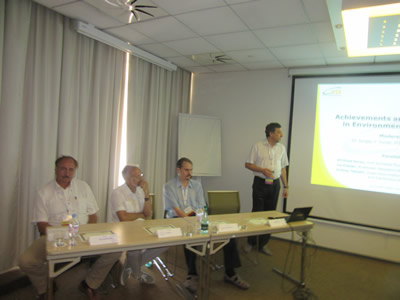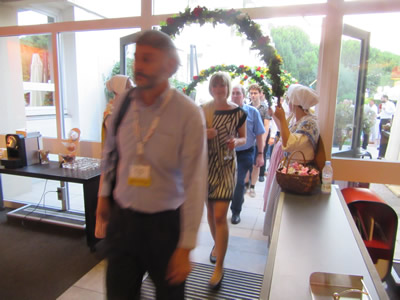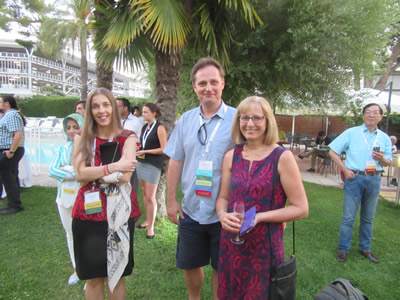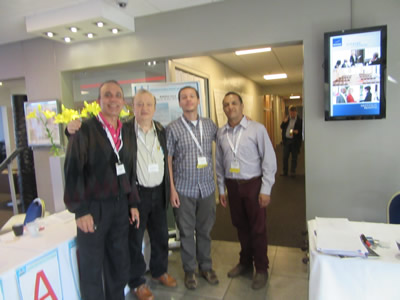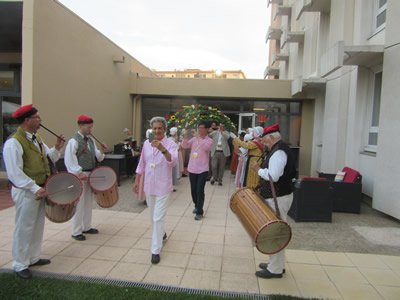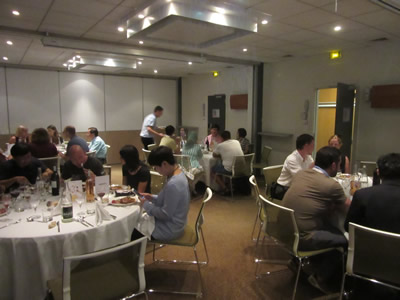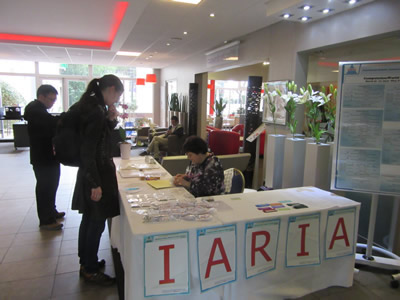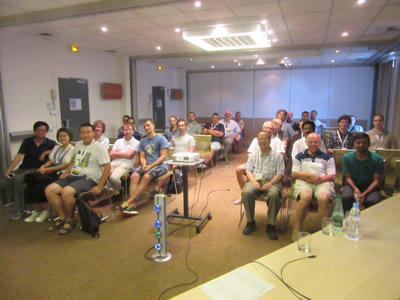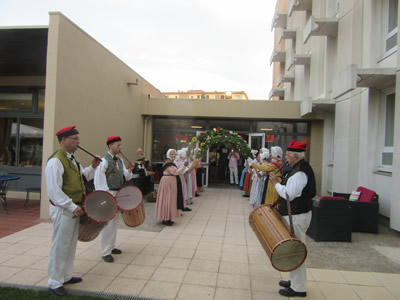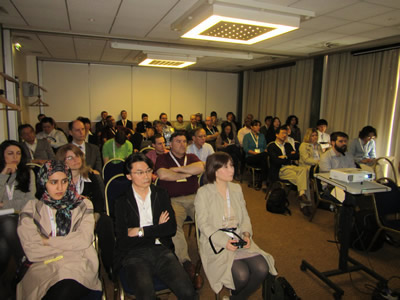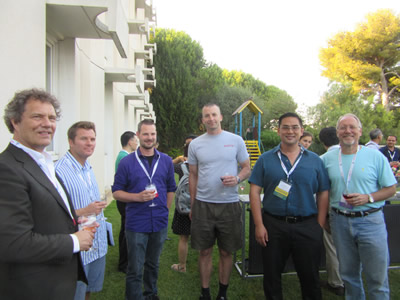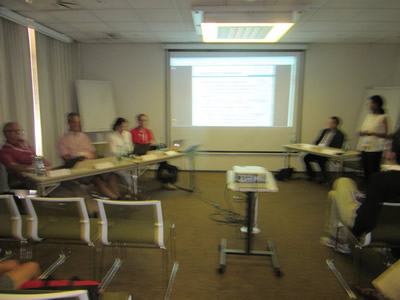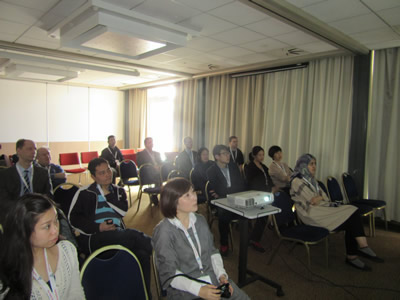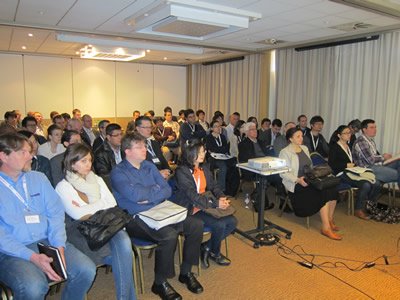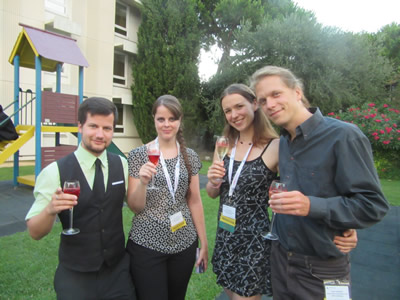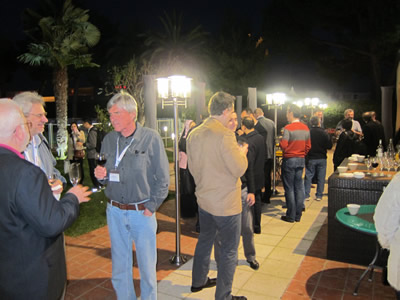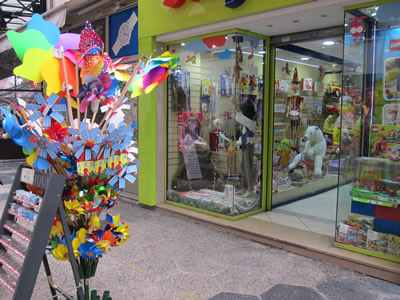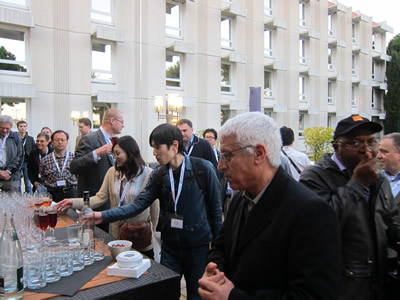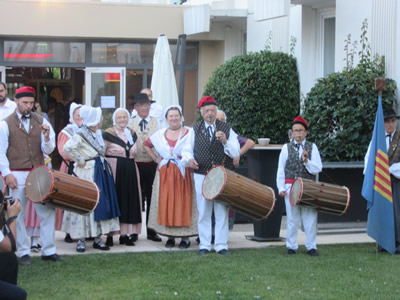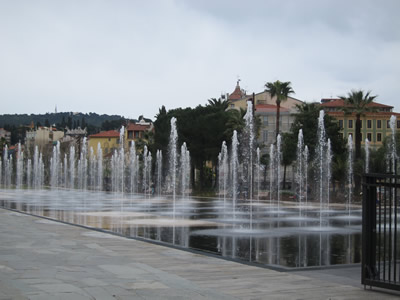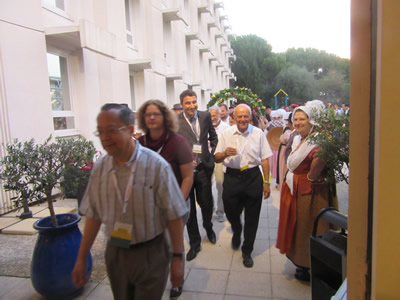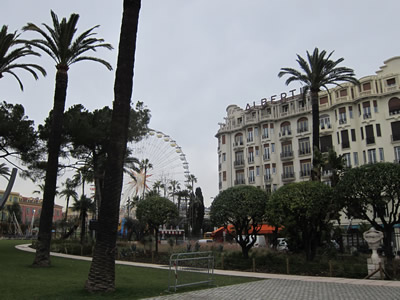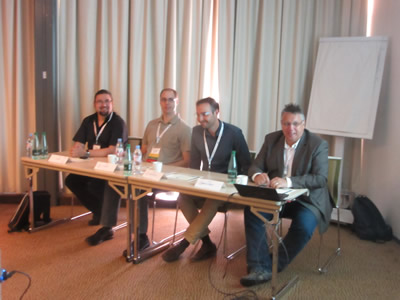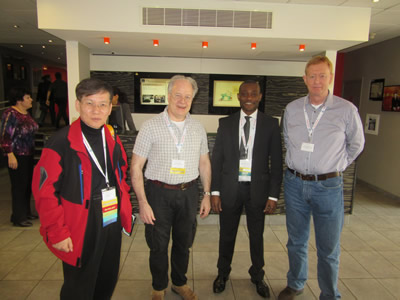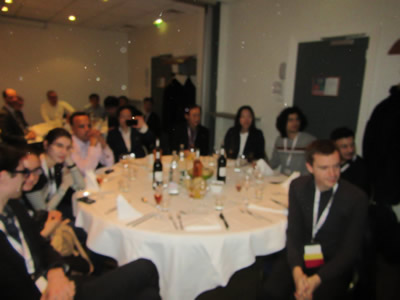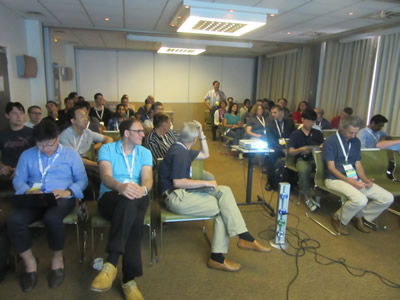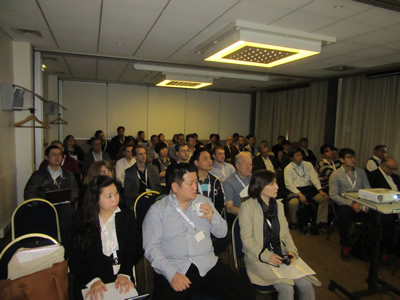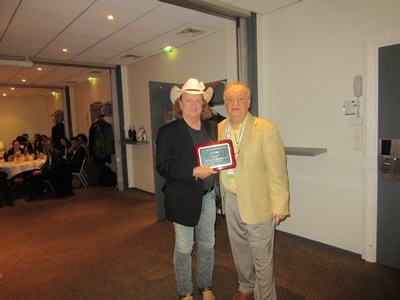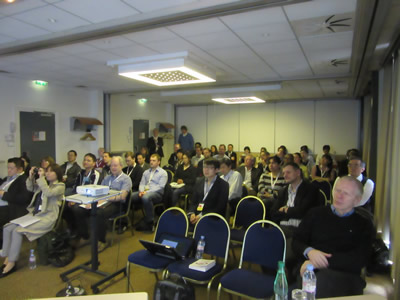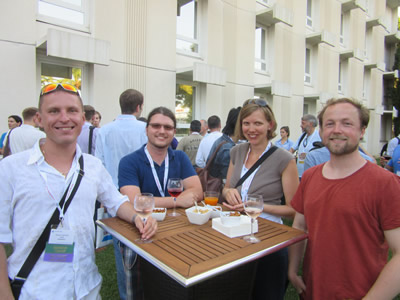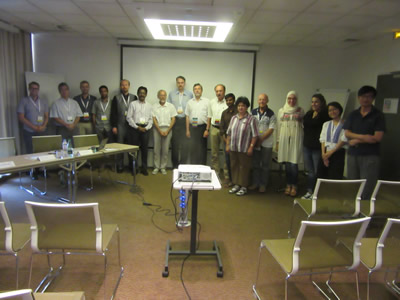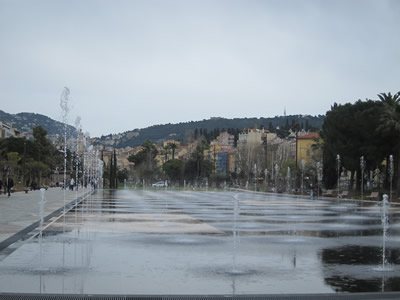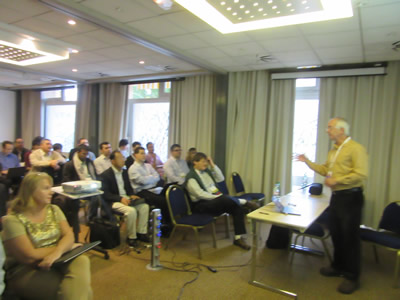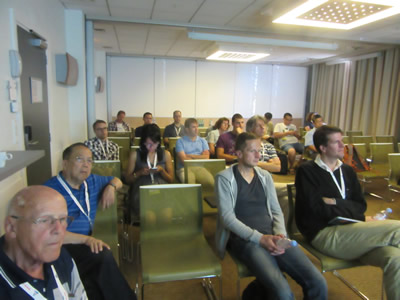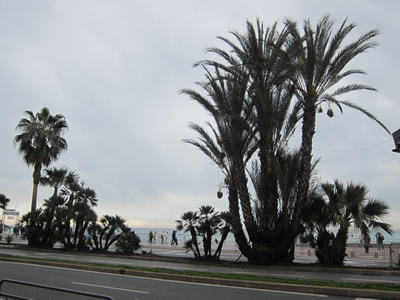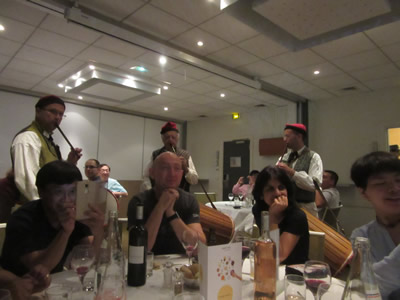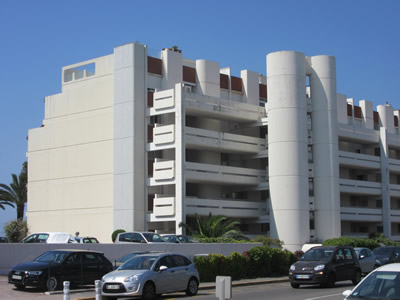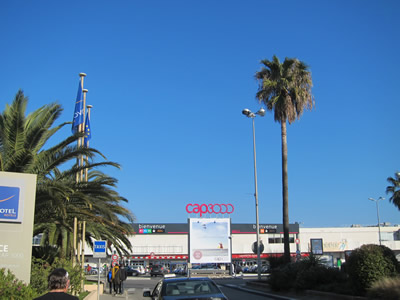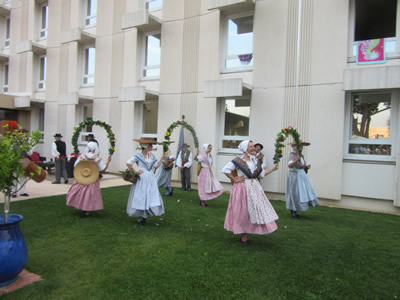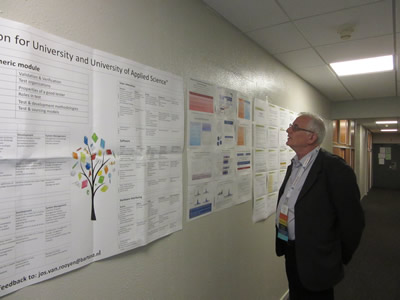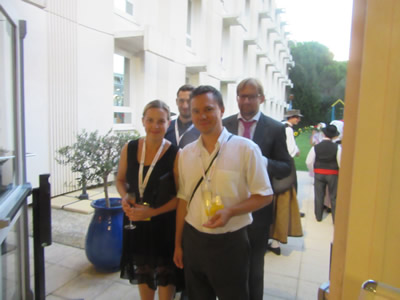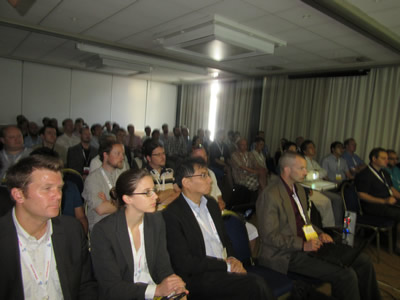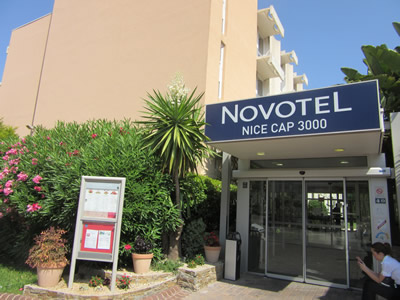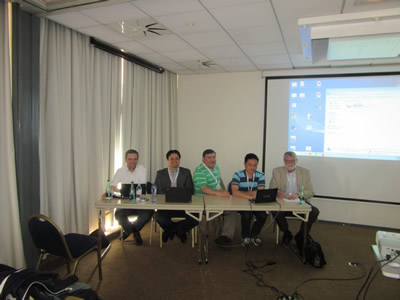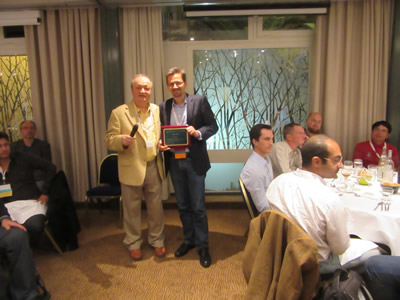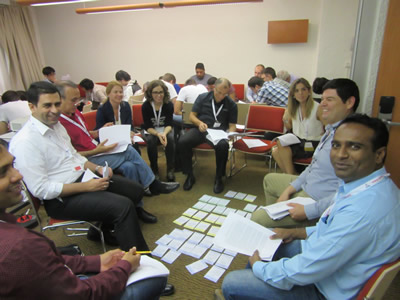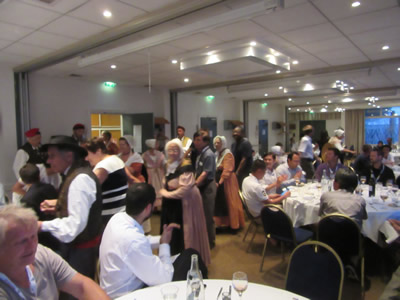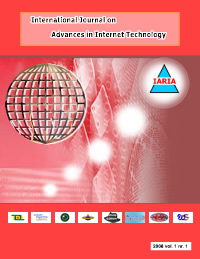WEB 2018 - The Sixth International Conference on Building and Exploring Web Based Environments
May 20, 2018 - May 24, 2018
WEB 2018: Call for Papers
The Web has changed the way we share knowledge, the way we design distributed services and applications, the way we access large volumes of data, and the way we position ourselves with our peers.
Successful exploitation of web-based concepts by web communities lies on the integration of traditional data management techniques and semantic information into web-based frameworks and systems.
WEB 2018, The Sixth Conference on Building and Exploring Web-based Environments, continues the inaugural conference on web-related theoretical and practical aspects, focusing on identifying challenges for building web-based useful services and applications, and for effectively extracting and integrating knowledge from the Web, enterprise data, and social media.
We solicit both academic, research, and industrial contributions. We welcome technical papers presenting research and practical results, position papers addressing the pros and cons of specific proposals, such as those being discussed in the standard fora or in industry consortia, survey papers addressing the key problems and solutions on any of the above topics short papers on work in progress, and panel proposals.
Industrial presentations are not subject to the format and content constraints of regular submissions. We expect short and long presentations that express industrial position and status.
Tutorials on specific related topics and panels on challenging areas are encouraged.
The topics suggested by the conference can be discussed in term of concepts, state of the art, research, standards, implementations, running experiments, applications, and industrial case studies. Authors are invited to submit complete unpublished papers, which are not under review in any other conference or journal in the following, but not limited to, topic areas.
All topics and submission formats are open to both research and industry contributions.
WEB 2018 conference tracks:
Trends on WEB-based services/applications
Audio-Visual Web applications; Social media interactions; Distributed Internet services; Web fora; Web-based personalized recommendations; Co-evolving online activities; Web novelty-seeking; Web shocking news; Personalized Web search; Web search and mining; Web-based planing; Web-based situation-aware applications; Collaborative multimedia; Contextualizing news articles; Web photo tagging; Opinion-based Web services; Interactive keyword search; Internet advertising services; Online personal assistants; Collaborative writing; Social media posts; Web and urban environments; Web-based disaster management; Web-based practical reasoning; Spamming detection; Reasoning models for the semantic Web; Online Web experiments; Web template extracting; Web deep browsing; Discovering Web content vulnerabilites; Ad hoc exploratory search; Malvertizing; Web tweeting cameras; Web rumor/regret detection; Streaming documents; Web tables; Reputation-as-a-Service; Ethical Web research; Topic-aware source locating services; Anonymous Web traffic; Facebook user profiling; Users Webfootprints; Ad hoc exploratory search; Online maps services; Web-based context extraction; Microblogs; End-User Web automation tools; Web search queries; Web search as medical services; Web tracking; Web Authentication Systems; Web social ecosystems; Collaborative filtering recommenders; Web scale applications; Online auction services
Trends on WEB-based data processing/analytics
Linked open data-based semantics; Linked data provenance; Web-crowd perspectives; Homogeneous unstructured data; Ontology-based data specification; Context-sensitive Web data; Web ontology; Web stream reasoning; Semantic views; Semantic data streams; Pervasive Web and mobility; Mining Web-scale knowledge graphs; Web page metadata; Homepage relevance; Web multi-view inconsistency; Web-based graph analytics; Web-based infrastructure; Web content analytics; Geo-social Web Analytics; Web approximating semantics; Web latent semantic; Generation of Dataset Metadata; Web and Data-driven diagrams; Web components composition; Web self-adaptive API; Semantic Web technologies; Curating open data; Geotagging social-media posts; Statistical linked data; Sparse user-generated data; Human-centered entity linking; Transfer deep learning; Mobile Web cache; RDF data; Web private-preservation; Web vulnerabilities in browsers; Tabular Data on the Web; Web linguistic changes; Web-based systems security; Web preferences; Web pattern semantics; Modeling web user activities; Twitter data analytics; Web knowledge graphs; Collaborative annotation; Fast keyphrase extraction; Web of data
Web fundamentals
Web architectures; Web engineering; Web applications; Web services and information management; Behavioral analysis and personalization; Crowdsourcing systems and Social Media; Content analysis; Pervasive Web and Mobility; Social Networks and Graph Analysis; Web search systems and applications; Web Infrastructure: Datacenters, Content Delivery Networks, and Cloud Computing; Internet Economics and Monetization
Communities
Adaptive social Web; Web communities; Web-based collaboration; Community Q/A on the Web; Web user modeling for e-learning; Web user profile representation; Web user profile evolution; Web user data collection; Web identity management; Web search engine evaluation; Web search and meta-search
Uncertain Web Services
Uncertainty-aware QoS; Uncertainty in Web service compositions; Discovering services under uncertainty; The uncertainty-enabled model web; Trust assessment for Web services under uncertainty; Uncertainty in chained Web services; Uncertainty propagation; Representing and simulating uncertain environmental variables; Quantifying, managing and communicating uncertainty; Uncertainty Markup Language (UncertML)
Skyline Services
Skyline services composition; QoS-based skyline selection; Dominant Web services; Spatial skyline computation; Selecting dynamic skyline services; Skyline metrics and criteria; Parallelization of skyline computation; Progressive skyline computation; Skyline optimization for Web service composition; Skyline applications (Peer-to-Peer, Demographic, etc.); Benchmarks for skyline computation
Semantic Web Designing and Programming
New semantic web programming paradigms; Visualizing Web data and big data; Programming patterns for semantic search; Metrics for data quality; Platforms, methodologies and tools for semantic web design; Linked data and deep web; Development of interoperable web applications; Data analysis of semantic web; Mashing up data and processes; Big data and semantic representation; New semantic-enabled capabilities and existing IDEs; Provenance of semantic data, processes and services; Web-based database integration; Semantic intelligence on the Web; Linked-data enhanced social learning and Web intelligence; Programming semantic mining and retrieval mechanisms;
Searching
Social Web mining; Information integration on the Web; Learning via Web; Web accessibility; User profiles on the Web; Mobile Web; Multimedia on the Web;
Features
Quality in Web engineering; Security Web data; Semantic Web; Wireless Web; Web graphs; Web-based emergence and self-organization; Text Understanding and Representation; Text Complexity, Readability, and Trust Measurement; Privacy and security; Trust and reputation; Access control; Policies and policy languages
Human-Web Interaction
Natural language interfaces; Keyword-based query interfaces; Hybrid query interfaces; Emotional behavior; Adaptive Web interfaces; Learning User Profiles; Personalized Interfaces; Remembrance Agents; Interaction visualization; Social and psychological challenges
Web Accessibility
Design approaches, techniques, and tools to support Web accessibility; Best practices for evaluation, testing reviews and repair techniques; Accessibility across the entire system lifecycle; Accessibility within e-organizations: good practices and experiences; Industry and research collaboration, learning from practice, and technology transfer; Mobile Internet-Web Accessibility; Developing user interfaces for different devices; Dealing with different interaction modalities; Web authoring guidelines and tools; Accessibility and other core areas related to the Web user experience; (UX): Usability, Findability, Valuability, Credibility, etc.; Innovations in assistive technologies for the Web; Accessible graphic formats and tools for their creation; Adaptive Web accessibility; Accessibility and information architecture; Universally accessible graphical design approaches; User Profiling; Cognitive and behavioral psychology of end user experiences and scenarios
Services and Applications
Web services; Web wisdom; Web-based notification systems; Web messaging; Web DBs; Web-based database integration; Business intelligence on the Web; Web-based multimedia search and retrieval; Mobile commerce and business services; Linked-data enhanced social learning; Web intelligence; Web (temporal) analytics; Deep Web; Location-aware Web applications
Deadlines:
Submission | Feb 07, 2018 |
Notification | Mar 11, 2018 |
Registration | Mar 24, 2018 |
Camera ready | Apr 03, 2018 |
Deadlines differ for special tracks. Please consult the conference home page for special tracks Call for Papers (if any).
INSTRUCTION FOR THE AUTHORS
Authors of selected papers will be invited to submit extended versions to one of the IARIA Journals.
Publisher: XPS (Xpert Publishing Services)
Archived: ThinkMindTM Digital Library (free access)
Prints available at Curran Associates, Inc.
How to submit to appropriate indexes.
Only .pdf or .doc files will be accepted for paper submission. All received submissions will be acknowledged via an automated system.
Contribution types
- regular papers [in the proceedings, digital library]
- short papers (work in progress) [in the proceedings, digital library]
- ideas: two pages [in the proceedings, digital library]
- extended abstracts: two pages [in the proceedings, digital library]
- posters: two pages [in the proceedings, digital library]
- posters: slide only [slide-deck posted on www.iaria.org]
- presentations: slide only [slide-deck posted on www.iaria.org]
- demos: two pages [posted on www.iaria.org]
FORMATS
Only .pdf or .doc files will be accepted for paper submission. All received submissions will be acknowledged via an automated system.
Final author manuscripts will be 8.5" x 11", not exceeding 6 pages; max 4 extra pages allowed at additional cost.
Helpful information for paper formatting for MS Word can be found here.
There is a community provided LaTeX template: the CTAN package iaria (with full IARIA formatting rules, including IARIA citation style, but for providing citation style it is tightly bound to pdflatex+biblatex+biber). In addition, there is also iaria-lite (not bound to pdflatex+biblatex+biber, but compatible with any TeX stack; thus, it cannot provide the IARIA citation formattings, but only the titlepage and content-related IARIA formatting rules). Based on the iaria package, there is a minimal working example as Overleaf template. When you are using the LaTeX templates, please still adhere to the additional editorial rules.
Slides-based contributions can use the corporate/university format and style.
Your paper should also comply with the additional editorial rules.
Once you receive the notification of contribution acceptance, you will be provided by the publisher an online author kit with all the steps an author needs to follow to submit the final version. The author kits URL will be included in the letter of acceptance.
We would recommend that you should not use too many extra pages, even if you can afford the extra fees. No more than 2 contributions per event are recommended, as each contribution must be separately registered and paid for. At least one author of each accepted paper must register to ensure that the paper will be included in the conference proceedings and in the digital library, or posted on the www.iaria.org (for slide-based contributions).
CONTRIBUTION TYPE
Regular Papers (up to 6-10 page article -6 pages covered the by regular registration; max 4 extra pages allowed at additional cost- ) (oral presentation)
These contributions could be academic or industrial research, survey, white, implementation-oriented, architecture-oriented, white papers, etc. They will be included in the proceedings, posted in the free-access ThinkMind digital library and sent for indexing. Please submit the contributions following the instructions for the regular submissions using the "Submit a Paper" button and selecting the appropriate contribution type. 12-14 presentation slides are suggested.
Short papers (work in progress) (up to 4 pages long) (oral presentation)
Work-in-progress contributions are welcome. These contributions represent partial achievements of longer-term projects. They could be academic or industrial research, survey, white, implementation-oriented, architecture-oriented, white papers, etc. Please submit the contributions following the instructions for the regular submissions using the "Submit a Paper" button and selecting the contribution type as work in progress. Contributors must follow the conference deadlines, describing early research and novel skeleton ideas in the areas of the conference topics. The work will be published in the conference proceedings, posted in the free-access ThinkMind digital library and sent for indexing. For more details, see the Work in Progress explanation page. 12-14 presentation slides are suggested.
Ideas contributions (2 pages long) (oral presentation)
This category is dedicated to new ideas in their very early stage. Idea contributions are expression of yet to be developed approaches, with pros/cons, not yet consolidated. Ideas contributions are intended for a debate and audience feedback. Please submit the contributions following the instructions for the regular submissions using the "Submit a Paper" button and selecting the contribution type as Idea. Contributors must follow the conference deadlines, describing early research and novel skeleton ideas in the areas of the conference topics. The work will be published in the conference proceedings, posted in the free-access ThinkMind digital library and sent for indexing. For more details, see the Ideas explanation page. 12-14 presentation slides are suggested.
Extended abstracts (2 pages long) (oral presentation)
Extended abstracts summarize a long potential publication with noticeable results. It is intended for sharing yet to be written, or further on intended for a journal publication. Please submit the contributions following the instructions for the regular submissions using the "Submit a Paper" button and selecting the contribution type as Extended abstract. Contributors must follow the conference deadlines, describing early research and novel skeleton ideas in the areas of the conference topics. The work will be published in the conference proceedings, posted in the free-access ThinkMind digital library and sent for indexing. 12-14 presentation slides are suggested.
Posters (paper-based, two pages long) (oral presentation)
Posters are intended for ongoing research projects, concrete realizations, or industrial applications/projects presentations. The poster may be presented during sessions reserved for posters, or mixed with presentation of articles of similar topic. A two-page paper summarizes a presentation intended to be a POSTER. This allows an author to summarize a series of results and expose them via a big number of figures, graphics and tables. Please submit the contributions following the instructions for the regular submissions using the "Submit a Paper" button and selecting the contribution type as Poster Two Pages. Contributors must follow the conference deadlines, describing early research and novel skeleton ideas in the areas of the conference topics. The work will be published in the conference proceedings, posted in the free-access ThinkMind digital library and sent for indexing. 8-10 presentation slides are suggested. Also a big Poster is suitable, used for live discussions with the attendees, in addition to the oral presentation.
Posters (slide-based, only) (oral presentation)
Posters are intended for ongoing research projects, concrete realizations, or industrial applications/projects presentations. The poster may be presented during sessions reserved for posters, or mixed with presentation of articles of similar topic. The slides must have comprehensive comments. This type of contribution only requires a 8-10 slide-deck. Please submit the contributions following the instructions for the regular submissions using the "Submit a Paper" button and selecting the contribution type as Poster (slide-only). The slide-deck will be posted, post-event, on www.iaria.org.
8-10 presentation slides are suggested. Also a big Poster is suitable, used for live discussions with the attendees, additionally to the oral presentation.
Presentations (slide-based, only) (oral presentation)
These contributions represent technical marketing/industrial/business/positioning presentations. This type of contribution only requires a 12-14 slide-deck. Please submit the contributions following the submission instructions by using the "Submit a Paper" button and selecting the contribution type as Presentation (slide-only). The slide-deck will be posted, post-event, on www.iaria.org.
12-14 presentation slides are suggested.
Demos (two pages) [posted on www.iaria.org]
Demos represent special contributions where a tool, an implementation of an application, or a freshly implemented system is presented in its alfa/beta version. It might also be intended for thsoe new application to gather the attendee opinion. A two-page summary for a demo is intended to be. It would be scheduled in special time spots, to ensure a maximum attendance from the participants. Please submit the contributions following the submission instructions by using the "Submit a Paper" button and selecting the contribution type as Demos. The Demos paper will be posted, post-event, on www.iaria.org.
Tutorial proposals
Tutorials provide overviews of current high interest topics. Proposals should be for 2-3 hour long. Proposals must contain the title, the summary of the content, and the biography of the presenter(s). The tutorial slide decks will be posted on the IARIA site.
Please send your proposals to tutorial proposal
Panel proposals
The organizers encourage scientists and industry leaders to organize dedicated panels dealing with controversial and challenging topics and paradigms. Panel moderators are asked to identify their guests and manage that their appropriate talk supports timely reach our deadlines. Moderators must specifically submit an official proposal, indicating their background, panelist names, their affiliation, the topic of the panel, as well as short biographies. The panel slide deck will be posted on the IARIA site.
Please send your proposals to panel proposal
